


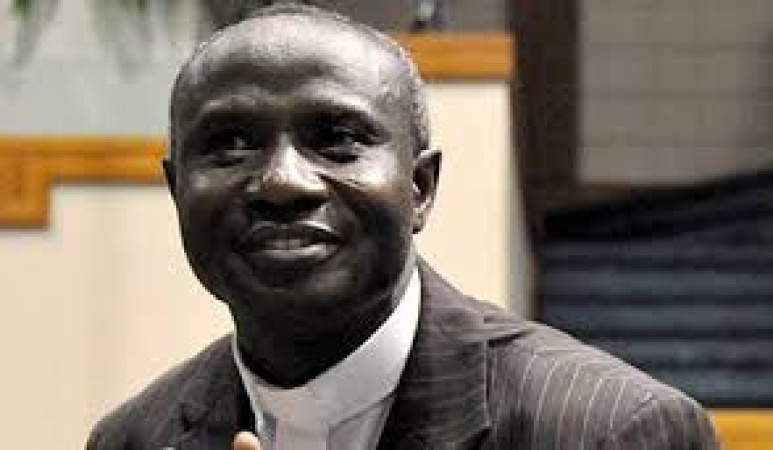
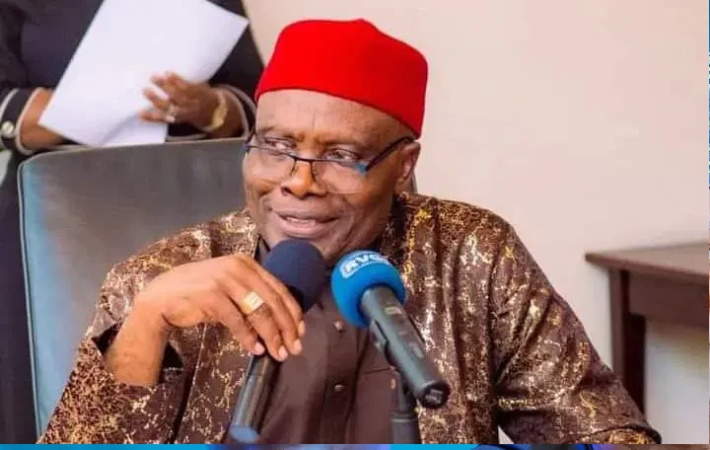
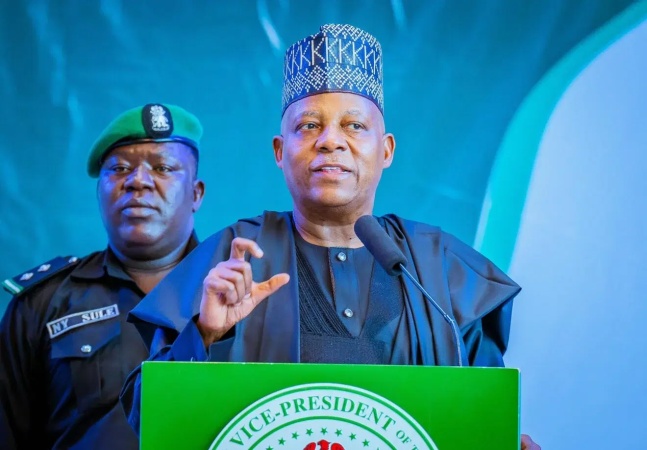
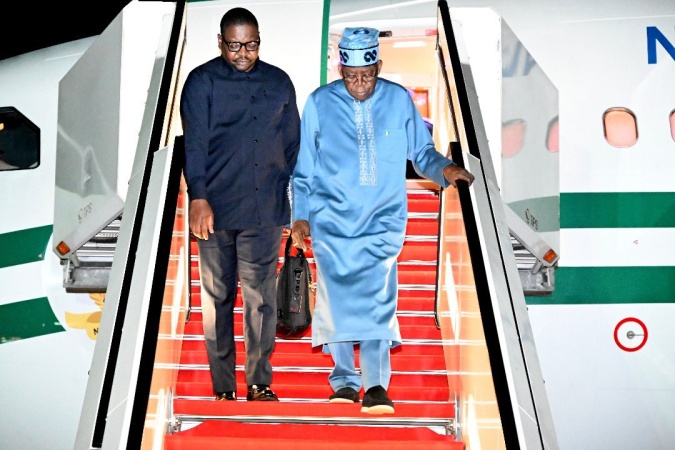
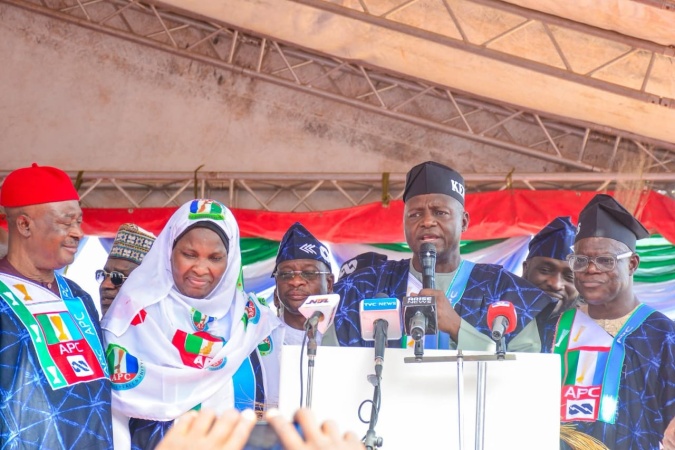






Loading banners


NEWS EXPRESS is Nigeria’s leading online newspaper. Published by Africa’s international award-winning journalist, Mr. Isaac Umunna, NEWS EXPRESS is Nigeria’s first truly professional online daily newspaper. It is published from Lagos, Nigeria’s economic and media hub, and has a provision for occasional special print editions. Thanks to our vast network of sources and dedicated team of professional journalists and contributors spread across Nigeria and overseas, NEWS EXPRESS has become synonymous with newsbreaks and exclusive stories from around the world.
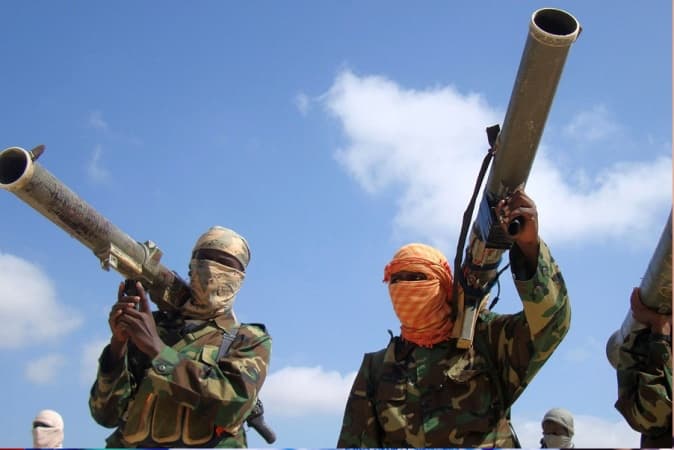
Terrorists
By Fr. Dr. OKHUELEIGBE OSEMHANTIE ÃMOS
A stitch in time saves nine, so goes the old counsel of wisdom; yet when such counsel is scorned or sacrificed on the altar of complacency, society pays in compound interest. Nigeria is living proof. Since the politics of “genocide or no genocide” became the national pastime, reckless violence has surged like a tide unrestrained, swallowing innocence, dignity, and the remains of civic confidence. Kidnappings in Kaduna, the cleansing of school children across the northern corridors, church attacks in Ekiti, the desecration of worship in Ilorin, the ambush of soldiers, the killing of a brigadier, every new dawn seems to bring a fresh obituary of national security. Reality is not smiling; reality is bleeding.
Within just two weeks in November 2025, the bandwidth of violence widened beyond anything the Nigerian state has absorbed in years. In Niger State, armed gunmen stormed St. Mary’s Catholic School in Papiri and abducted over 300 children and 12 teachers in one night. Hours later, Kebbi State reported the abduction of 25 girls from a boarding school in Maga, alongside the killing of their vice principal. In Kwara State, worshippers in a Sunday service were attacked, leaving at least three dead and more than 30 kidnapped. Southern Kaduna reeled under coordinated assaults on churches and homes, while several communities were displaced by Fulani militia raids. Long before these November horrors, Nigeria’s educational landscape had already recorded a grim statistic: 2,496 students abducted in 92 school attacks since Chibok. Now, the November figures add a chilling new chapter to a story that seems endless, and senseless.
While media panic has been accused of worsening public fear, the truth remains that panic is merely the echo of lived terror. Analysts and theorists have been quick to adorn the crisis with possible interpretations: that it is a strategy to force Donald Trump into geopolitical concessions, a calculated attempt to demarket Tinubu just as Goodluck Jonathan was once besieged, a signpost of an entrenched Islamic agenda, or the ultimate consequence of the Muslim–Muslim ticket now exposed by a Senate many regard as clueless. Plausible as these theories may appear, they are not the primary concern here. They may offer psychological comfort or rhetorical ammunition, but they do not rescue abducted children, they do not protect worshippers, they do not restore shattered communities. Nigeria’s problem is not theoretical, it is existential.
Amid the tension, Government ordered the shutdown of scores of Unity Schools and nearly all public schools in several northern states. This measure, meant to save lives, begs the uncomfortable questions many prefer to avoid. For how long will the schools remain closed? And more importantly, why are they closed? From a superficial angle, shutting down schools appears prudent. But, when deeply examined, it feels like a concession, an admission that the bandits and insurgents have achieved one of their core ideological goals: to halt formal education. When the state locks classrooms and sends children back home because it cannot guarantee their safety, it is not simply taking precaution; it is announcing to the world that non-state actors have outrun state capacity. It is announcing that the custodial machinery of government has buckled. It flirts dangerously with the claim that Nigeria is becoming an ungoverned space, a territory where the flag still waves but the authority it symbolizes is hollow.
To tell children to stay away from school is as wrong as telling them to attend classes under threats of abduction. Home is no safer than school in many of these regions. More tragically, the cost of non-education will outlive the violence we see today. A child denied schooling is not merely absent from class; he is absent from the future. And a society that deprives its young of education is manufacturing the very recruits, sympathizers, and foot soldiers that sustain future cycles of extremism. In trying to escape the terror of bandits, Nigeria may be involuntarily preparing the seedbed for a more devastating terror decades from now.
Closing schools gives temporary relief, but it hands psychological victory to the criminals who want classrooms emptied. It tells them: “Your mission is working.” It emboldens them to spread further. It weakens communities, erodes national confidence, and confirms the suspicion that the Nigerian state has either become complacent or compromised. The verdict is simple yet unsettling: if the state is not compromised, then she must rise now—urgently—and do the expedient.
Doing the expedient means more than issuing statements of condemnation or launching symbolic airstrikes. It demands a structural re-engineering of security, a genuine investment in intelligence rather than reaction, and a decisive stance against the ransom economy. It requires political sincerity across party lines, because terror does not check party cards before it strikes. It demands moral courage from leaders who must finally admit that the nation’s house is on fire and water must replace rhetoric. It asks religious leaders, traditional authorities, civil society, and the media to resist the temptation to normalize the abnormal.
Nigeria stands today at a point where silence is complicity, timidity is betrayal, and indifference is death. The collapse of education is the collapse of civilization. The triumph of bandits over classrooms is the triumph of darkness over light. The abduction of schoolchildren is not merely a crime; it is a national indictment, a spiritual blasphemy, a moral catastrophe.
The hour has come for the state to rise, not symbolically, not reluctantly, but decisively, because if the lives of children, teachers, worshippers, soldiers, farmers, and ordinary citizens do not shock the conscience of leadership, then perhaps nothing ever will.
•Fr. Dr. Okhueleigbe is a priest of the Catholic Diocese of Uromi and a Lecturer at the Catholic Institute of West, Port Harcourt.